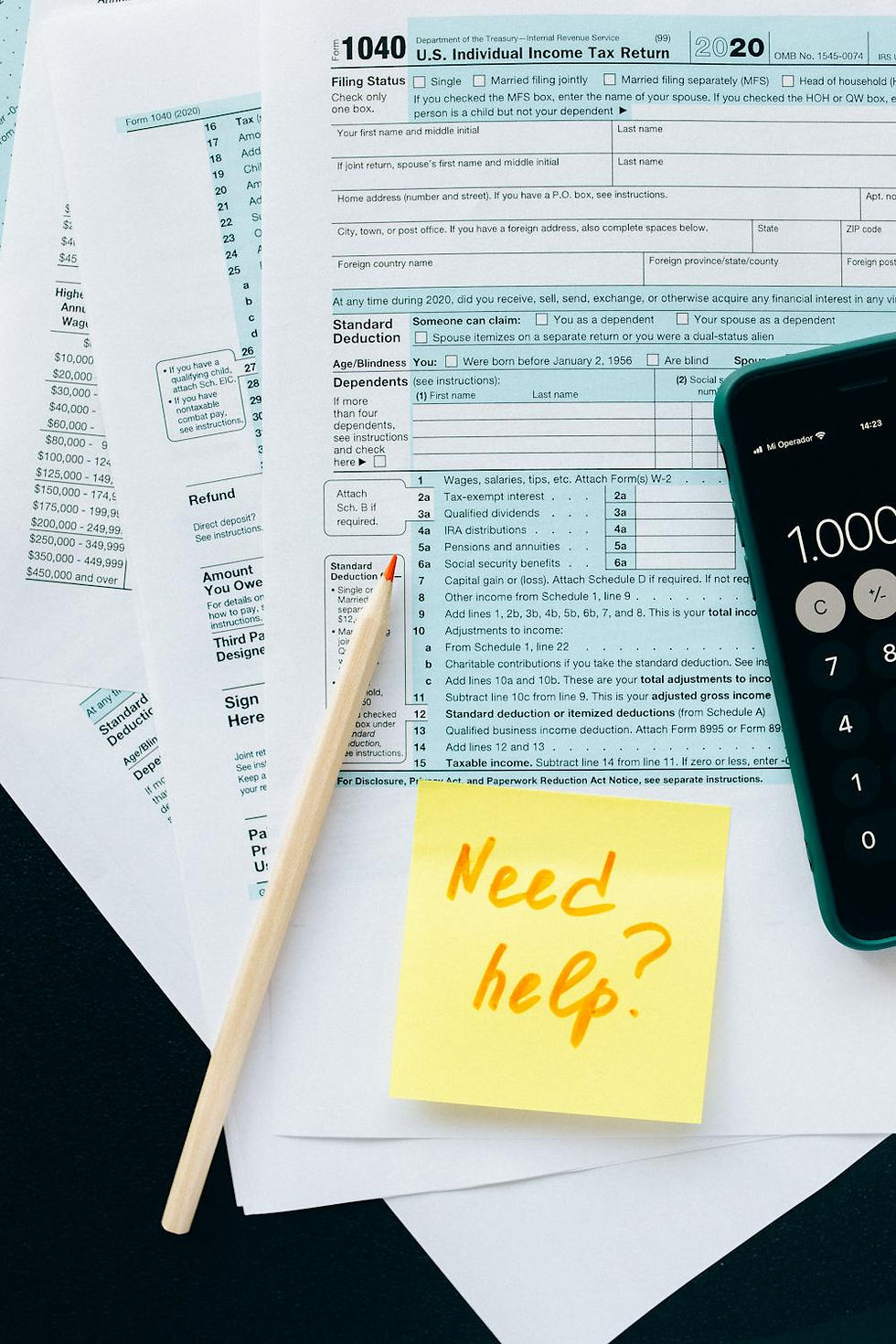Taiwan vs. U.S. Rental Income Taxation – Part 1: Deductible Expenses
- Sincerus Advisory
- Feb 28
- 3 min read
Updated: Mar 3
Calculation of Rental Income in Taiwan
The method for calculating taxable rental income differs significantly between Taiwan and the U.S., even if the rental income amount is the same. In Taiwan, taxpayers can choose between two methods to determine their rental income for income tax purposes:
Itemized Deduction Method – Deducting actual expenses related to the rental property.
Standard Deduction Method – Applying a fixed 43% expense rate.
According to Taiwan’s National Taxation Bureau, when using the itemized deduction method, only necessary and reasonable expenses related to the rental activity can be deducted. Allowable deductions include:
Depreciation of the property
Repair expenses
Land tax and property tax
Insurance premiums on the rental property
Mortgage interests payment
Alternatively, the standard deduction method allows taxpayers to deduct 43% of rental income as expenses without needing to provide supporting documentation. This means that taxable rental income is automatically set at 57% of total rental revenue.
For example, if Mr. A earns NT$3,000,000 in rental income in a given tax year and chooses the standard deduction method, his taxable rental income would be NT$1,710,000 (3,000,000 × 57%). On the other hand, if Mr. A opts for the itemized deduction method and incurs the following expenses:
NT$1,500,000 in repair costs
NT$50,000 in property and land taxes
NT$100,000 in mortgage interest
His total deductible expenses would amount to NT$1,650,000, making his taxable rental income NT$1,350,000 (3,000,000 – 1,650,000). In this scenario, the itemized deduction method is more beneficial for Mr. A.
Calculation of Rental Income in the U.S.
Unlike Taiwan, which allows for a 43% standard deduction, the U.S. tax system requires itemized deductions for rental income. According to the IRS, deductible rental expenses include:
Mortgage interests payment
Property tax
Depreciation
Repairs
Utilities
Insurance
Reasonable supply expenses for the rental
Travel expenses related to rental property management
While these deductible expenses are similar to those allowed in Taiwan, the U.S. tax law has specific rules for capital improvements. If a repair or renovation significantly enhances the property’s value, reinforces its structure, or expands its usable space, it must be classified as a capital cost and added to the property’s original purchase cost for depreciation purposes rather than deducted as a direct expense.
Examples of capital costs include:
Plumbing and electrical systems
HVAC systems
Elevators and escalators
Fire and security systems
Gas distribution systems
Seismic reinforcement
Property expansion
Example Case
Ms. B owns a rental property in Taiwan and earns NT$4,000,000 in rental income in 2024. She resides in the U.S. but travels to Taiwan every three months to manage the rental. Her travel expenses between Taiwan and the U.S. total NT$600,000. This year, she also reinforced the property’s structure for earthquake resistance at a cost of NT$1,000,000. Other expenses include NT$200,000 in depreciation and NT$50,000 in insurance.
In Taiwan's tax system, Ms. B has two options:
Itemized deduction:
Deductible expenses = NT$1,250,000 (1,000,000 + 200,000 + 50,000)
Standard deduction (43%):
Deductible expenses = NT$1,720,000 (4,000,000 × 43%)
Since the standard deduction results in higher deductible expenses, Ms. B should choose the 43% expense rate when filing her Taiwanese income tax.
In the U.S., her deductible expenses amount to NT$850,000 (600,000 + 200,000 + 50,000). However, the NT$1,000,000 spent on structural reinforcement is classified as a capital cost and must be depreciated over time rather than deducted immediately.
Differences in Depreciation Rules Between Taiwan and the U.S.
Both Taiwan and the U.S. allow depreciation as a deductible expense for rental income, but the depreciation periods differ:

These differences in taxation and depreciation rules highlight the significant variations in rental income taxation between Taiwan and the U.S. Expats who own rental properties in Taiwan should carefully assess their tax strategies and seek professional advice to minimize their tax liabilities.




Comentários